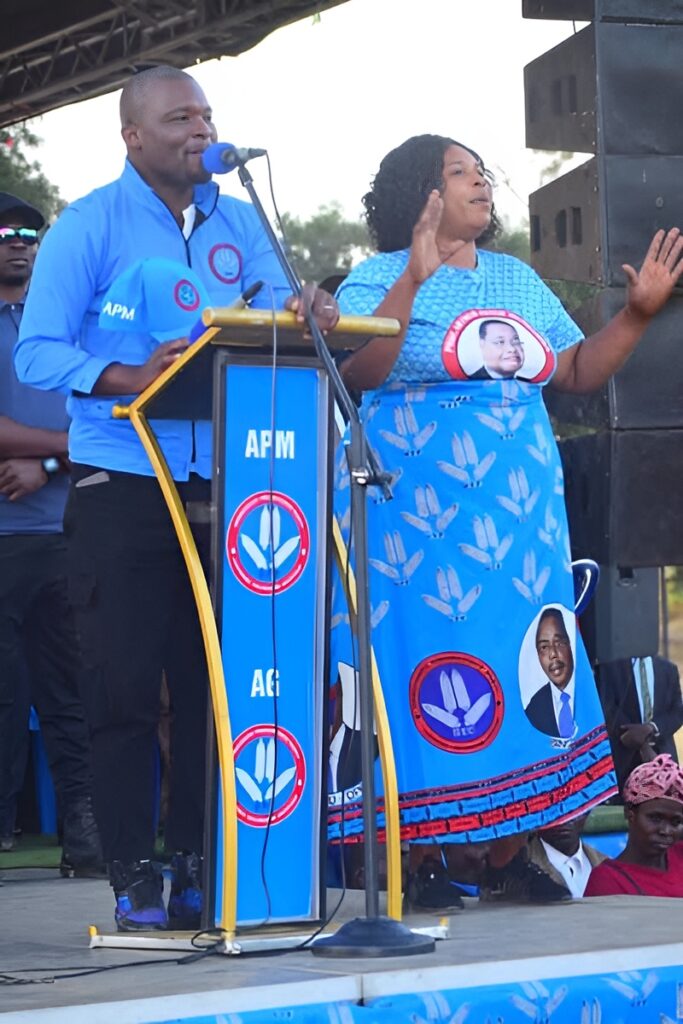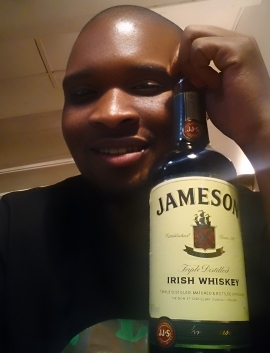In a dramatic political turn, Democratic Progressive Party (DPP) Vice President for the Central Region, Alfred Gangata, has withdrawn from the party’s presidential campaign activities in the Central Region after being overlooked as running mate to the party’s presidential candidate, Arthur Peter Mutharika, the Pangolin Online can reveal.
Gangata, who had long harbored ambitions of being picked as Mutharika’s second-in-command, is said to be disillusioned and angry over the selection of former Malawi Electoral Commission (MEC) Chairperson Jane Ansah.

Mutharika, 86, officially presented his nomination papers to the Malawi Electoral Commission ahead of the September 16 polls when he also announced Ansah going with him on the DPP presidential ticket, a move that sources say sent shockwaves across the Gangata camp.
As various parties intensify their campaign across the country, Gangata, who was expected to lead the Central Region campaign efforts, has conspicuously gone silent. He last had a rally in the region on July 13 before APM presented his nomination papers.
Sources within the DPP confirmed that he has stopped funding party operations in the region, cancelled planned rallies, and is instead focusing his energy on securing his parliamentary seat in Dedza, where he is contesting as Member of Parliament.
The businessman-cum-politician confirmed his frustration in a cryptic Facebook post. Quoting Job 1:21, Gangata wrote: “Always be humble. Because what God gives, He can also take.”
Though not explicitly mentioning the running mate issue, the post has been interpreted by political observers and DPP insiders as a veiled expression of disappointment and bitterness.
“This is someone who invested a lot of money in the party’s rebuilding since 2021 and believed he had earned his place as running mate. But it seems Norman Chisale and his team had other plans, and Gangata was completely blindsided,” said one DPP insider referring to Chisale who is widely believed as the kingmaker in the DPP and the one calling the shots as to who gets what.
Ironically, Gangata’s withdrawal comes against a backdrop of an increasingly hostile relationship with Norman Chisale, bodyguard and security aide to APM. The two have been engaged in a silent power struggle for influence over Mutharika.
Sources close to the matter say the feud intensified in recent months, with both men reportedly using proxies to discredit one another within party circles.
There have been accusations of corruption, manipulation, and financial sabotage. While Gangata controlled the DPP’s Central Region structures and pumped in significant personal funds, Chisale has the ear of APM and significant sway over decisions around campaign strategy and how finances are being used.
Earlier this year, a heated confrontation between the two at Page House in Mangochi almost turned physical, prompting senior party officials to intervene.
“Their fight was no longer about ideology or strategy, it became about who controls party strategy and the president,” said one senior DPP official who witnessed the fallout.

Although, Gangata recently rose to position of influence within the DPP his political ambitions have long been overshadowed by allegations of corruption and fraud.
He is currently answering charges in the Lilongwe Magistrates Court over allegations that he uses a Malawi School Certificate of Education (MSCE) which he got fraudulently after hiring someone to write the examinations on his behalf.
The case, brought forward by the Anti-Corruption Bureau (ACB), is a serious offence that could result in imprisonment if found guilty.
Additionally, Gangata has been linked to numerous questionable business dealings especially during the DPP’s previous administration, including contracts awarded dubiously to his companies in which the proceeds were being channeled back to the party.
There are also lingering allegations that he misused campaign funds in the run-up to the botched 2020 Fresh Presidential Elections.
Despite these scandals, Gangata has remained defiant, insisting that he is a victim of political witch-hunting and intra-party jealousy.
“Some people are afraid of my influence in the party and my growing popularity in the Central Region. They want to eliminate me,” he said during a recent appearance on a local radio talk show.
Gangata’s exit from active campaign work is a blow to the DPP, particularly in the Central Region, a battleground area that holds significant electoral weight.
He had been central to mobilizing grassroots support and financing local rallies. His absence leaves a strategic gap in the party’s campaign machinery.
With only weeks remaining before Malawians head to the polls, the DPP now faces the challenge of managing internal divisions while trying to present a unified front to the electorate.
Several political analysts have warned that such disunity could cost the party dearly at the ballot box.
“Gangata’s absence is symbolic as it reflects a deep fracture within the DPP. The party is struggling with generational conflict, unresolved succession issues, and the increasing perception that it is recycling tainted individuals for leadership roles,” said one political analyst Victor Chipofya.
The decision to pick Jane Ansah as Mutharika’s running mate was itself a controversial move.
Ansah is a polarizing figure, remembered for presiding over the disputed 2019 elections that led to the Constitutional Court nullifying Mutharika’s victory and ordering a fresh vote. Her tenure at MEC was marred by protests, court cases, and mass public outcry.
To many, her appointment reopens wounds and reminds Malawians of one of the darkest chapters in the country’s democratic history. Critics argue that her selection is not only tone-deaf but also a desperate attempt by Mutharika to cling to loyalists who will protect his interests.
The unfolding Gangata saga adds to a growing list of internal conflicts plaguing the DPP.
In the past few months alone, the party has seen the resignation of key members, such as former Vice President Everton Chimulirenji, amid complaints of lack of inclusivity and dictatorship in decision-making.
Others, like Nicholas Dausi and Uladi Mussa, have in the past spoken out against the leadership style within the DPP, accusing APM of surrounding himself with sycophants and sidelining capable leaders.
One civil society activist commented: “DPP is becoming a classic case of a party that refuses to evolve. It’s a ship stuck in the past, captained by a tired, sick and aged leader who is being manipulated by power-hungry vultures.”
The Gangata fallout raises serious questions about the future of the DPP and the type of leadership it is offering Malawians.
With a presidential candidate who is visibly frail, a running mate shrouded in controversy, and vice presidents abandoning ship, the party seems to be in a self-destructive mode.








